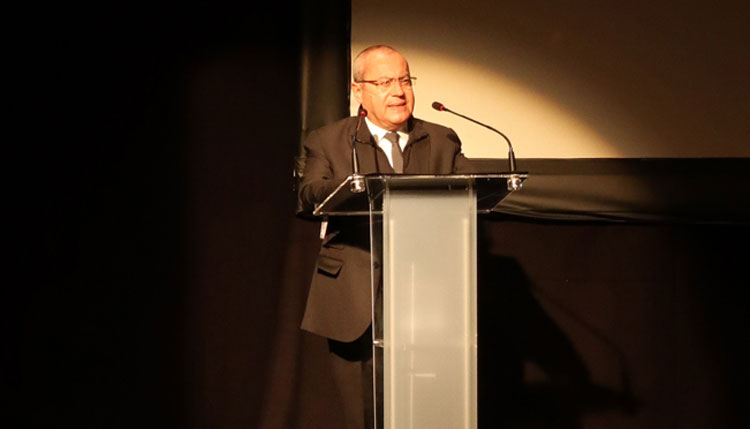Eduardo González
Russia’s ambassador in Madrid, Yuri Korchagin, assured yesterday that his country has “no intention of attacking Ukraine”, called the sanctions announced by the European Union “illegitimate and destructive” and warned that, just as his government “respects Spain’s obligations to NATO”, Spain also has to respect “the obligations in its bilateral relationship with Russia”.
“Our dialogue with Spain is constructive,” the ambassador declared during a press conference. “Our relationship with Spain is not limited to December 2021 or January 2022; this year, on February 9, we celebrate the 45th anniversary of the restoration of diplomatic relations, it has been 300 years since a Russian embassy was established in Madrid and 500 years since the first contacts, it is already centuries of a normal, good and mutually advantageous relationship,” he continued.
“When I talk to Spain now, my message is always that we respect Spain’s obligations within NATO and within the EU,” he assured. “Undoubtedly, we respect Spain’s obligations within NATO because Spain is a member of NATO; that doesn’t mean that we share all those concepts, but we respect them,” he continued. However, he warned, “this respect for obligations goes beyond what Spain has with NATO or with the EU,” because “Spain also has a series of obligations in its bilateral relationship with Russia,” he warned.
In this regard, the ambassador informed during the press conference that the Russian Foreign Minister, Sergey Lavrov, has sent this week a letter to his NATO counterparts, including the Spanish Minister, José Manuel Albares, in which he reminds them of their “obligation not to strengthen their own security at the expense of the security of other states, based on the commitment to the principle of indivisible security”, and asks them for an “individualized and clear” response on their position regarding NATO’s eastward enlargement.
“Spain is part of the countries to which Lavrov sent the letter,” said the ambassador, who recalled that our country is a signatory of both the 2010 Astana Declaration and the 1994 OSCE Code of Conduct on Politico-Military Aspects of Security, which establish that every state has “the right to freely choose its alliances” but also “the obligation not to strengthen its security at the expense of others.”
Regarding the current security crisis in Eastern Europe, the ambassador assured that “fake news have multiplied that Russia has accumulated a large number of troops near the Ukrainian border” with the aim of “creating a kind of panic among everyone, that we are on the verge or on a threshold of a war.” “Russian military detachments are in their usual location on Russian territory. Troops are 300 kilometers from the border, is that close?” he wondered. “Russia has no intention to attack Ukraine,” he assured.
According to Korchagin, “the only worrying thing is the reinforcement of NATO infrastructure and forces on Russia’s borders”, because “it is not Russia that sends weapons, nor missiles, Russia has no troops abroad, those who supply armaments and send troops are not us”. “NATO troops are in Ukraine”, where it has installed missiles “with the capacity to reach our territory in minutes”, he denounced.
On the other hand, the ambassador assured that it was not the Russian government that leaked to the press the documents published last Wednesday by the newspaper El País with the response of the United States and NATO to Russia’s security proposals, in which a military de-escalation is proposed to Moscow but the possible entry of Kiev into the Alliance is not renounced. This response, he said, only addresses secondary issues and ignores Russia’s “main demands”: that NATO not be expanded eastward, that offensive weapons systems not be deployed on Russia’s borders, and that the Alliance’s 1997 configuration of forces and infrastructure be returned to its 1997 configuration.
Likewise, the ambassador warned that the sanctions announced by the European Union against Russia are “illegitimate and destructive” because only the UN Security Council has the power to impose such measures. These sanctions “will make Russia pay a devastating price” and are “to the detriment of the people”, he denounced. Asked whether Moscow could use Russian gas as a pressure measure in the event of new sanctions by the European Union, Korgachin assured that his country “has proved to be a faithful supplier, but if Europe wants to buy more expensive gas elsewhere, let it do so”.







